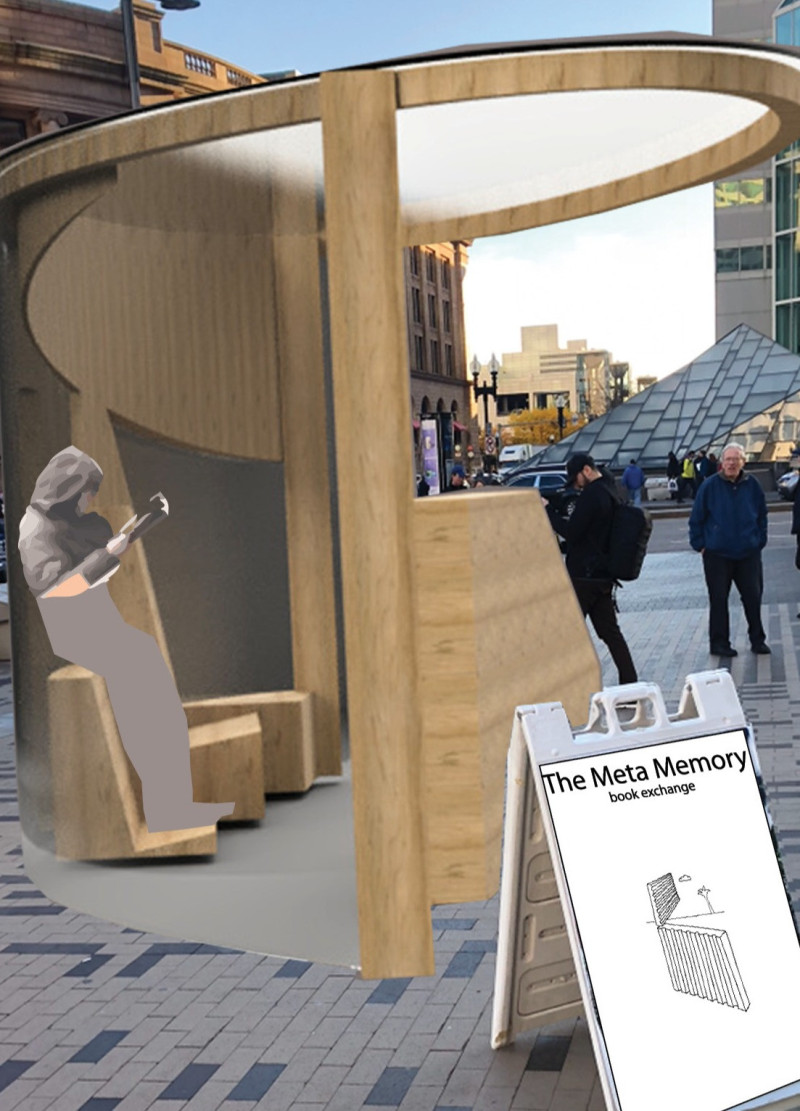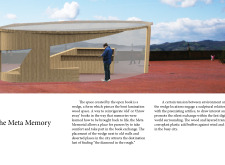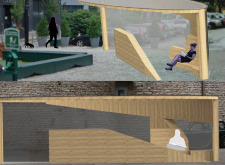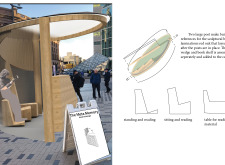5 key facts about this project
The Meta Memory project is located in neglected urban areas, aiming to encourage community engagement through the idea of an open book. This wedge-shaped structure functions as both a site for a book exchange and a space for reflection, inviting users to interact with the stories held within physical books. The design connects with the surrounding environment, urging visitors to think about the narratives of the past and the present.
Design Philosophy
The concept focuses on the contrast between old and new elements in the urban setting. By positioning the wedge next to weathered walls and deserted areas, the design highlights the differences in the landscape, drawing attention to forgotten stories. This deliberate placement creates opportunities for exploration and discovery, prompting passersby to engage with the relationship between the structure and its context.
Material Choices
The project employs bent lamination wood for the primary structure. This choice provides both aesthetic appeal and structural strength, allowing for flexibility in design. Red oak enhances the tactile qualities, adding to the theme of memory. Additionally, layered translucent coroplast plastic is incorporated to provide sound insulation and maintain visual connections with the outside, letting in natural light while reducing noise from the urban environment.
User Experience
The configuration of The Meta Memory focuses on usability by offering various reading areas, including spaces for standing and sitting, as well as tables for reading materials. This design promotes an inviting atmosphere, encouraging community participation in the book exchange. It fosters a culture of sharing and interaction, enhancing the overall experience of the space within the busy urban landscape.
Visitors to the site encounter a structure that invites curiosity and reflection. The wedge shape creates visual interest, casting shadows and patterns that interact with the changing light throughout the day. It stands as a part of the urban landscape, creating a dialogue between the old and the new, the familiar and the unknown.






















































